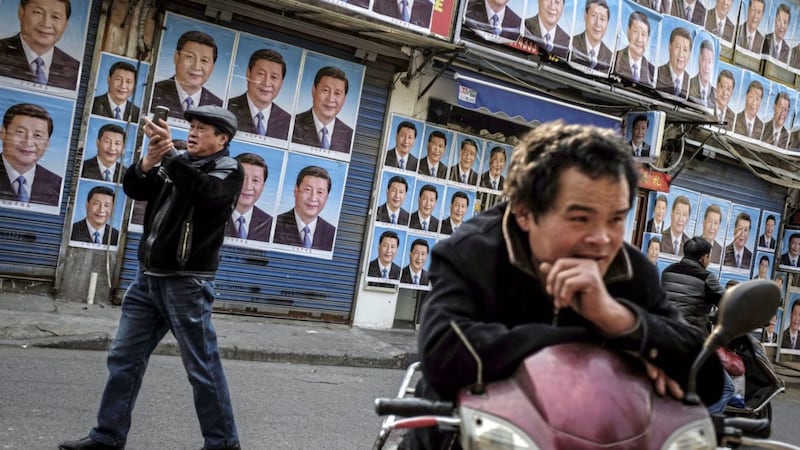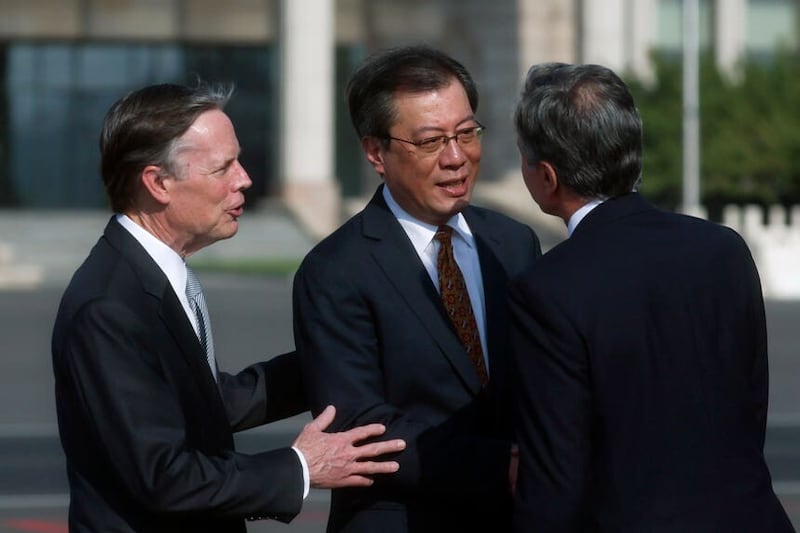Chinese legislators have passed a historic constitutional amendment that abolishes term limits and will enable President Xi Jinping to rule indefinitely.
The National People's Congress' nearly 3,000 hand-picked delegates endorsed the constitutional amendment on Sunday, voting 2,958 in favour with two opposed, three abstaining and one vote invalidated.
The amendment upends a system enacted by former Chinese leader Deng Xiaoping in 1982 to prevent a return to the bloody excesses of a lifelong dictatorship typified by Mao Zedong's chaotic 1966-1976 Cultural Revolution.
The slide towards one-man rule under Xi has fuelled concern that Beijing is eroding efforts to guard against the excesses of autocratic leadership and make economic regulation more stable and predictable.
The constitution had until now limited presidents to serving only two consecutive terms.
Voting began in the mid-afternoon, with Xi leading members of the seven-member all-powerful Politburo Standing Committee in casting their votes.
He placed his orange ballot paper in a red box bearing the official seal of state placed front and centre on the stage inside the cavernous hall.
Rank and file deputies then rose to vote on the floor of the hall as jaunty instrumental music played.
Ten minutes later, the process had ended and delegates were asked to return to their seats while the votes were counted.
The results were then read out over the public address system and flashed briefly on a screen in the hall.
"The constitutional amendment item has passed," the announcer declared to polite applause.
Mr Xi appeared to show little emotion, remaining in his seat with other deputies to listen to a report on the work of the congress delivered by its outgoing chairman.
In a sign of the issue's sensitivity, government censors are aggressively scrubbing social media of expressions ranging from "I disagree" to "Xi Zedong".
A number of prominent Chinese figures have publicly protested against the move, despite the risk of official retaliation.
The legislature's spokesman has said the abolishing of term limits is aimed only at bringing the office of the president in line with Mr Xi's other positions atop the ruling Communist Party and the Central Military Commission, which do not impose term limits.
The move is widely seen as the culmination of 64-year-old Mr Xi's efforts since being appointed leader of the party in 2012 to concentrate power in his own hands and defy norms of collective leadership established over the past two decades.
He has appointed himself to head bodies that oversee national security, finance, economic reform and other major initiatives, effectively sidelining the party's number two figure, Premier Li Keqiang.
Mr Xi's confident, populist leadership style and tough attitude towards official corruption has won him a significant degree of popular support.
Zhao Minglin (32), a vice-president of an investment firm in Beijing, said it was easier for Mr Xi to carry out his ambitious vision of raising living standards in China if more power were concentrated in his hands.
"I will definitely support this constitutional amendment and this government. This is a powerful and strong government," he said.
He added, however, that he was concerned that the public discourse lacked a space for dissenting voices.








